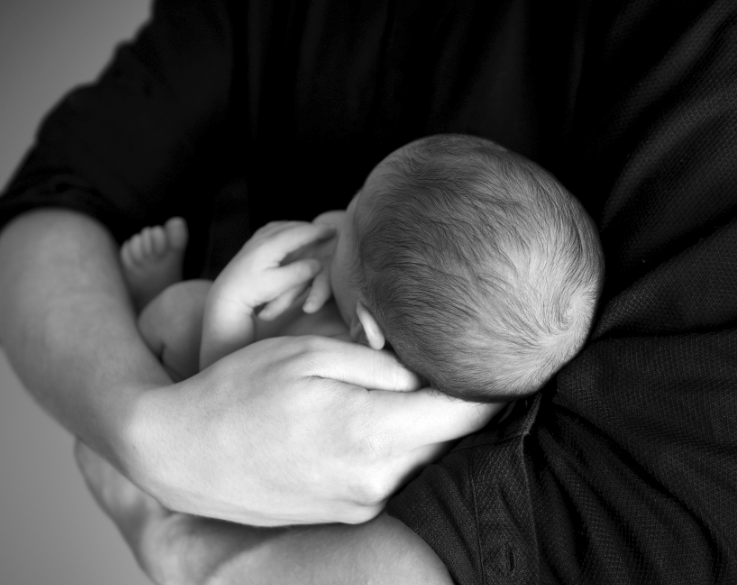In Spring of 2019, Dayspring Christian Academy’s Upper School students performed Learner and Loewe’s My Fair Lady. Based on Pygmalion, a work of George Bernard Shaw, the main character, Eliza, makes the following observation to her friend, Colonel Pickering:
“You see, really and truly, apart from the things anyone can pick up (the dressing and the proper way of speaking, and so on), the difference between a lady and a flower girl is not how she behaves, but how she’s treated. I shall always be a flower girl to Professor Higgins, because he always treats me as a flower girl, and always will; but I know I can be a lady to you, because you always treat me as a lady, and always will.”
This is a beautiful statement in all of its simplicity and depth. The Christian view of man is summed up in these lines beautifully as well—will we see others as inherently valuable simply because they are people, or is their value based upon their profession, their contribution to society, or their rank? Only one of these views is inherently Christian. Only one brings about freedom in its truest sense.
Individuality is best defined by words such as oneness, indivisibility, wholeness, integrity, completeness—that which is distinct, unique. There is a short poem that says,
Like no one else you see
God made me a witness
to His diversity.
The Christian view of man has both an outward application and an inward application. From the Bible, we can reason and understand that God has bestowed individuality not just on people, but on plants, animals, minerals, and more. We know from looking at the snowflake underneath the microscope that no two flakes of snow are the same. Similarly, we see in the world around us that no two flowers are the same, neither are there identical animals. Each component of the natural world is distinct, unique, even the stars! Psalms 19:1 tells us, “The heavens declare the glory of God. The skies display his craftsmanship.” We see these distinctions in people as well—no two thumbprints are alike, no two faces alike, no two voices alike, no two personalities alike. Acknowledging these distinctions is the outward application of God’s Principle of Individuality which states: There is one God who is sovereign over all Creation. Everything in God’s universe is an expression of His character, His nature, His infinity, and His individuality. What of the internal application of this principle?
If we understand that the outward application of individuality is simply seeing proof of individuality every day of our lives, we can turn that concept inward by asking ourselves questions like:
- What uniqueness of thought, feeling, and talent, has God entrusted to me?
- If I am uniquely created by God, and I am made in his image, how am I a reflection of God Himself?
- 1 Samuel 16:7 says, “…The Lord doesn’t see things the way you see them. People judge by outward appearance, but the Lord looks at the heart.” Do I see others the way God sees them? Do I see others as uniquely created in God’s image?
- Do I allow the Lord to use the unique gifts and talents He gave to me? Do I let Him daily renew and work in me and through me?
- What is my unique part in God’s plan?
Inward and outward application work in tandem to develop a view of man. Conversely, if we view man as only valuable based on his ability to contribute to society, the results will be seen in the types of actions we take towards others and the type of government we establish.
For example, every pregnant woman in Iceland is given the opportunity to test for Down’s Syndrome. While this test is 85% accurate, nearly 100% of pregnancies testing positive for Down’s Syndrome end in abortion. Why? The underlying worldview is that people are only valuable if they can contribute to society, and those who cannot contribute drain society’s resources. Harsh as that sounds, if the Christian view of man were applied, the understanding that many people with Down’s Syndrome live full and healthy lives and bless others simply because they are alive would change the course of the nation.
 Marguerite Reardon, a senior writer at CNET, wrote about the time when she found out her daughter would be born with Down’s Syndrome. She considered abortion, but what changed her mind was the day she found a community consisting of people with Down’s syndrome and parents of children with Down’s Syndrome. This community’s worldview changed Marguerite’s life (she now has a precious daughter) and her view of man.
Marguerite Reardon, a senior writer at CNET, wrote about the time when she found out her daughter would be born with Down’s Syndrome. She considered abortion, but what changed her mind was the day she found a community consisting of people with Down’s syndrome and parents of children with Down’s Syndrome. This community’s worldview changed Marguerite’s life (she now has a precious daughter) and her view of man.
Where the Christian view of man is applied, the people flourish. Perhaps the greatest example of this is in the founding of our nation – America. Our Founders recognized the distinct individuality of man, and set up a government that would serve him, rather than suppress his God-given individuality. America—a Constitutional Republic, the first of its kind—become the greatest advancement in human rights that ever took place. It put men on an equal playing field. Suddenly, one man was not more valuable than his neighbor. All were valuable with distinct roles to play.
Rosalie Slater, in Teaching and Learning America’s Christian History, reminds us:
“No wonder our nation becomes more socialistic daily when there is no clear-cut extension of this basic Christian principle of individuality into every aspect of our lives—social, educational, political, and economic. We can begin…to overturn the trend to be just a part of the whole—and instead teach God-given individuality.”
Slater’s suggestion of educating, and in turn, valuing, people enough to teach them of their inherent value and unique role in society can truly change a nation, just as Colonel Pickering changed Eliza’s perception of herself in Pygmalion.
At Dayspring Christian Academy, we are committed to raising up the next generation of Christian leaders who acknowledge the Lordship of Jesus Christ in every area of life, demonstrate a biblical worldview, become citizens of excellence in Christian character and scholarship, and aid in the restoration of America’s biblical foundation. If you would like to learn more about Dayspring Christian Academy, please contact Karol Hasting at 717-285-2000 or schedule a private tour using the button below.
Works Cited:
Reardon, Marguerite. https://www.cbsnews.com/news/down-syndrome-mothers-story/ Accessed April 4, 2019


